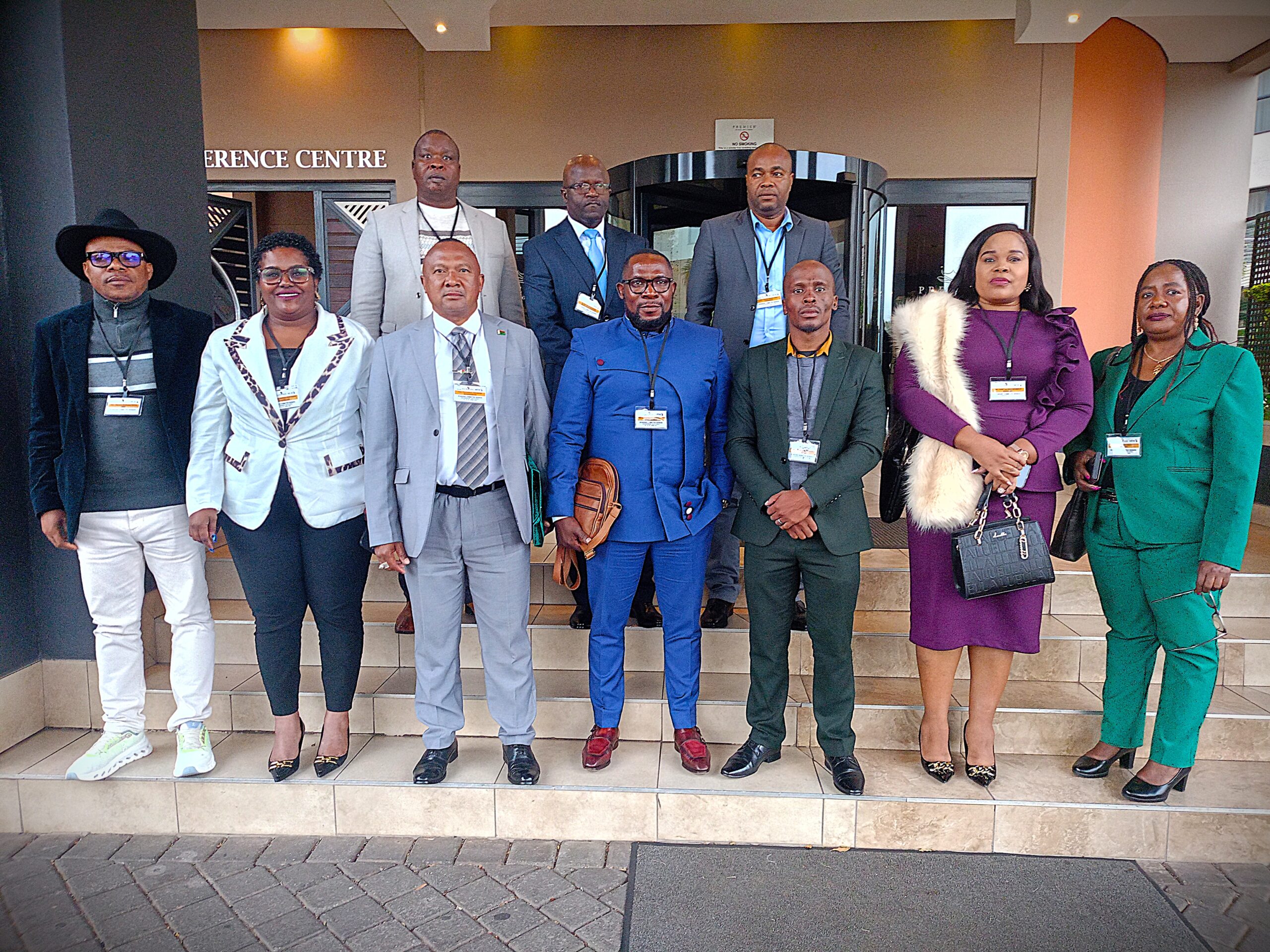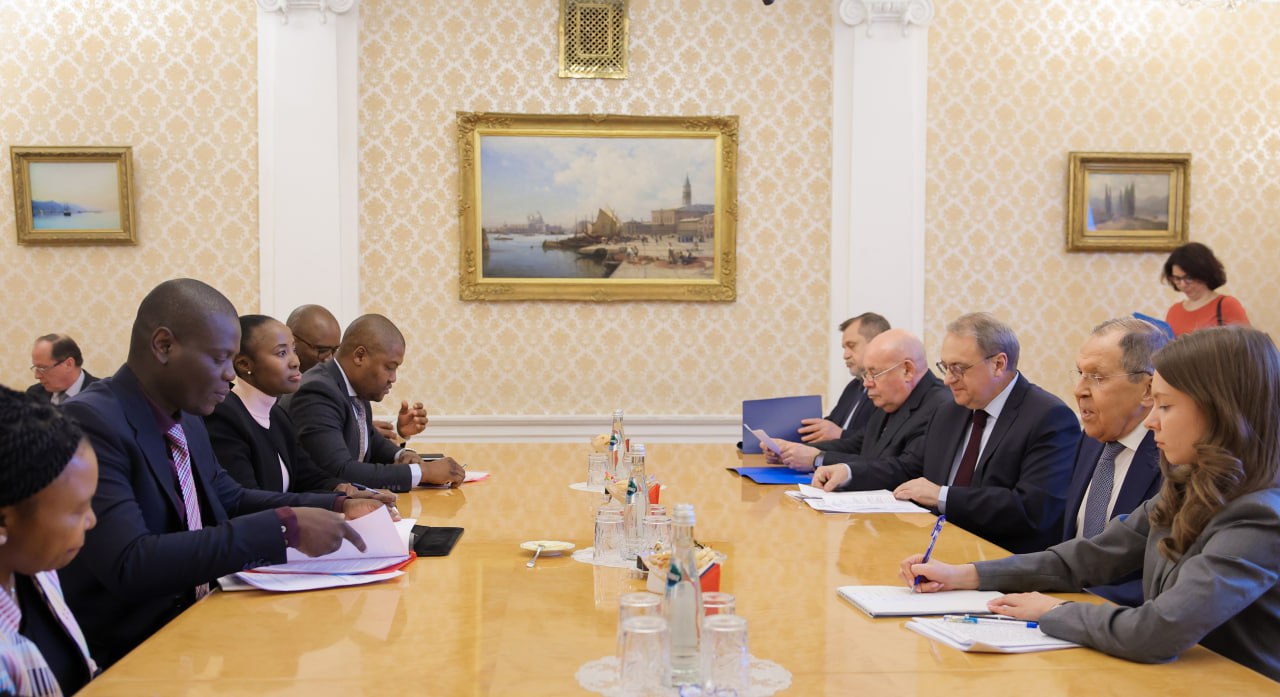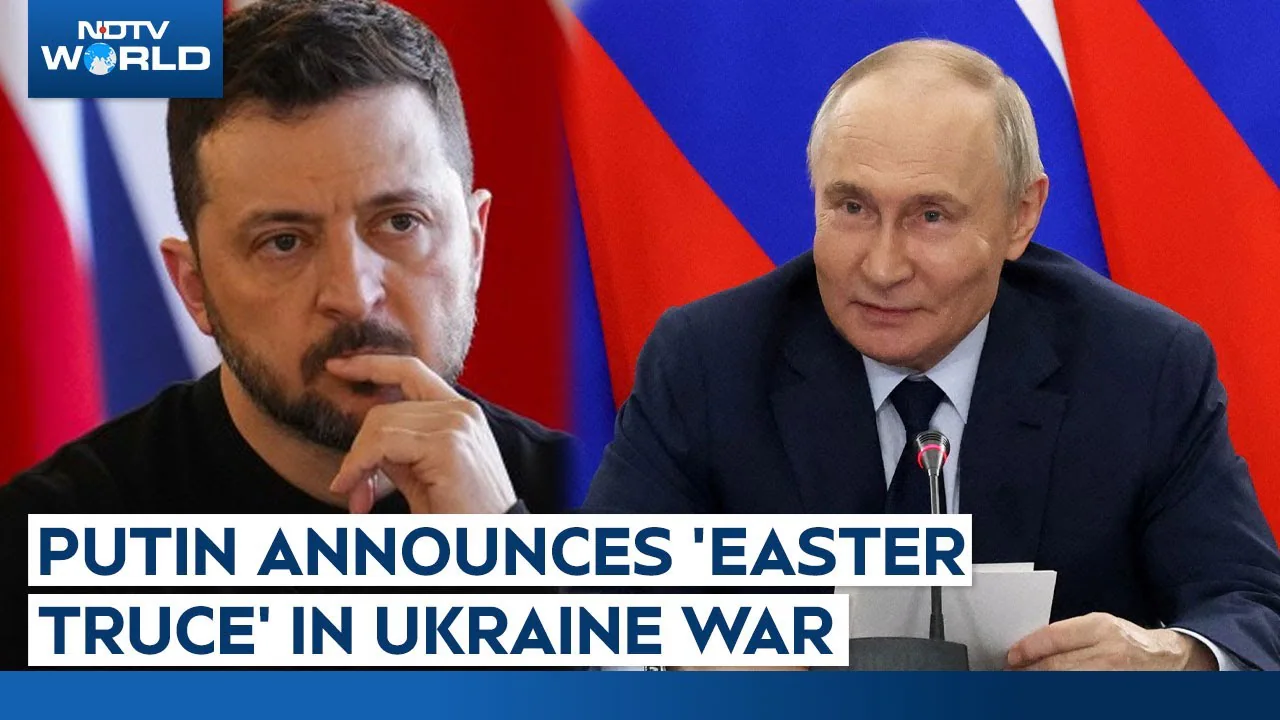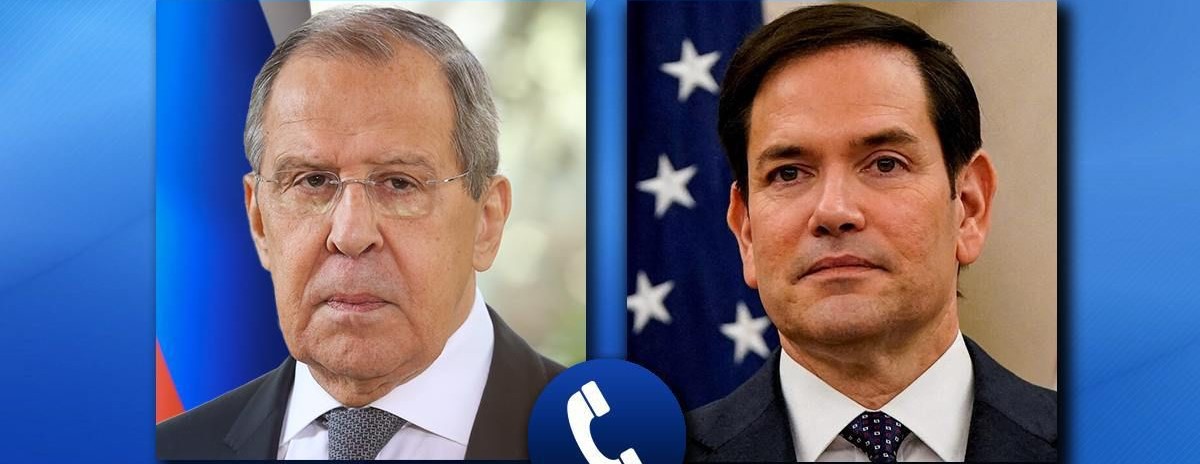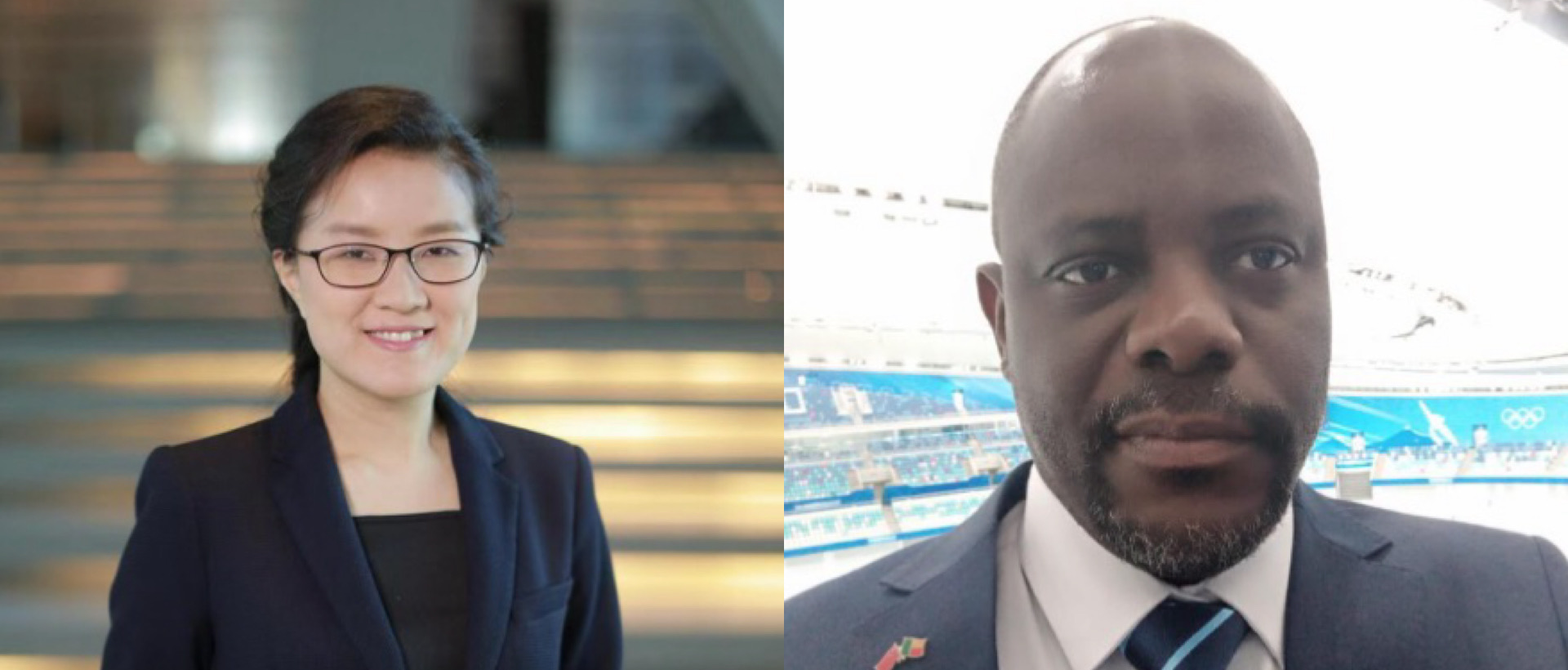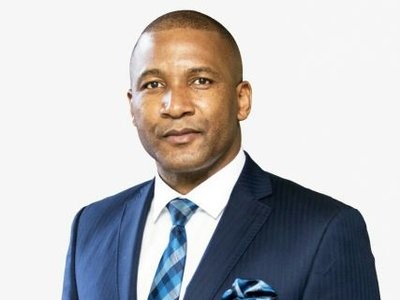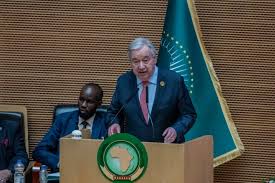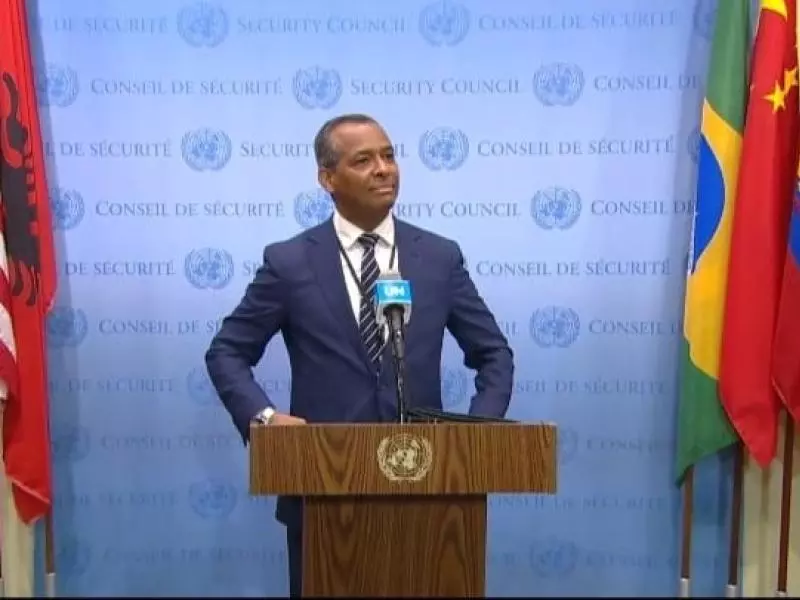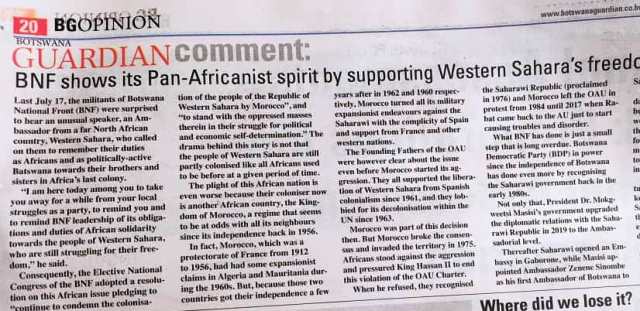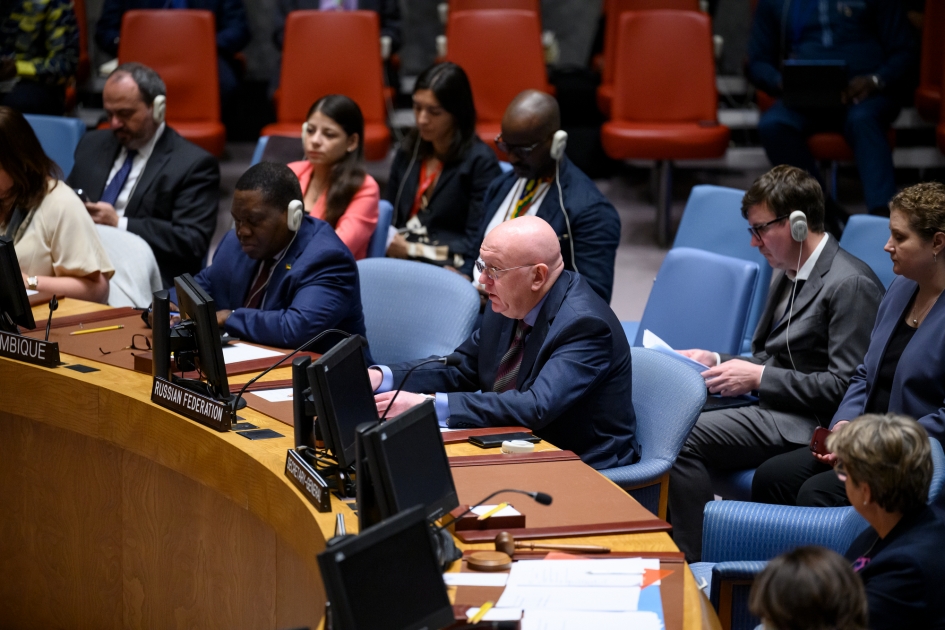
Russia's Permanent Representative to the United Nations Vassily Nebenzia
The Pan Afrikanist Watchman
African countries say effective measures are required to improve predictability, reliability and flexibility in the funding of African peace operations that are carried out under the auspices of the Security Council.
This is contained in the report of the United Nations Secretary-General on the implementation of UNSC resolutions 2320 and 2378, which contains specific considerations for resolving the problem of funding of African peace operations that are carried out under the auspices of the Security Council.

The position was further reiterated by Under Secretary-General DiCarlo, African Union (AU) Commissioner for Political Affairs, Peace and Security Adeoye Bankole, as well as Ms. Bitania Tadesse when they briefed the United Nations Securioty Council (UNSC) on May 25th, Africa Day.
The Russian Federation – through its Permanent Representative to the United Nations Vassily Nebenzia – has also expressed support for this position.
In his presentation to the UNSC briefing on issues relating to financing of African Union peace support operations, Nebenzia said Russia thinks that “it is not normal that peace and security in Africa depend on irregular assistance from individual states and associations”.
Africans know better than anyone the true nature and the root causes of instability in their region. They have come a long way in building the regional peace and security architecture, he said.
“By now they have developed mechanisms that take into account local specificities and harmoniously complement the efforts of the United Nations within their respective areas of responsibility and mandates”, he said.
Among these mechanisms, he mentioned the Peace and Security Council, which is underpinned by support of the AU Commission, the Panel of the Wise, the Continental Early Warning System, and the African Standby Force, saying they all function effectively. Nebenzia noted that the Peace Fund is also being replenished, while the African Union’s flagship initiative on silencing the guns, which has been extended until 2030, is being implemented.
Nebenzia said that the advantage of African peacekeeping as compared to the UN peace operations is the ability to respond quickly to emerging threats and challenges, as well as preparedness to use force to establish peace.
This is especially relevant given the growing terrorist threat on the continent and the volatility (if not complete absence) of peace agreements. He observed that the unstopping proliferation of crises and armed conflicts in Africa, which regional states and organizations quickly step in to resolve, dictates the need for an in-depth discussion of the issue of predictable and sustainable financing.
The lack of access to resources that are needed to settle these crises inevitably leads to the loss of effectiveness of the efforts undertaken and further spread of instability.
“Our African colleagues are capable of taking responsible decisions for ensuring e and security in their region”, he said, adding that this capability was demonstrated by the recent AU summit and its decisions regarding the use of the Peace Fund and its Crisis Reserve Facility to support the operation of the East African Community in the DRC and addressing the problem with the financing of the African Union Transitional Mission in Somalia (ATMIS).
Nebenzia appreciated the willingness of the regionals, which he noted, had confirmed at the summit, to self-sponsor 25% of the total cost of peace and security activities on the continent, including peacekeeping operations. He indicated that this step was a practical confirmation of the principle “African solutions to African problems”.
To that end, he said they are studying the considerations presented in the report of the Secretary-General on lessons learned from United Nations-African Union interaction and possible future planning and joint decision-making on peacekeeping missions in Africa, including the most viable funding models, while maintaining exhaustive measures to increase transparency and spending control.
He reiterated Russia’s readiness to join the targeted discussion of the matter during forthcoming negotiations of a specialized UNSC resolution. On an optimistic note, Nebenzia said that African states have made significant progress on human rights, transparency and accountability in their military contingents.
He said that the United Nations repeatedly provided material and financial support for African peace and security efforts, i.e. by employing the assessed contributions of UN member states.
Among the latest examples he cited the logistical support for African peacekeepers in Somalia via the United Nations Support Office in Somalia (UNSOS) channels, hybrid N-AU peacekeeping mission in Darfur, and support by the UN Blue Helmets in Mali for the G5 Sahel Joint Force.
Turning to Africa Day (May 25th) the Russian top diplomat noted that it was on that day 60 years ago when the first conference of African governments convened in Addis Ababa, which birthed the Organisation of African Unity – a mission that is today performed by the African Union.
“This event signified the termination of the first stage of decolonization on the African continent”, he said.
(C) TPA

